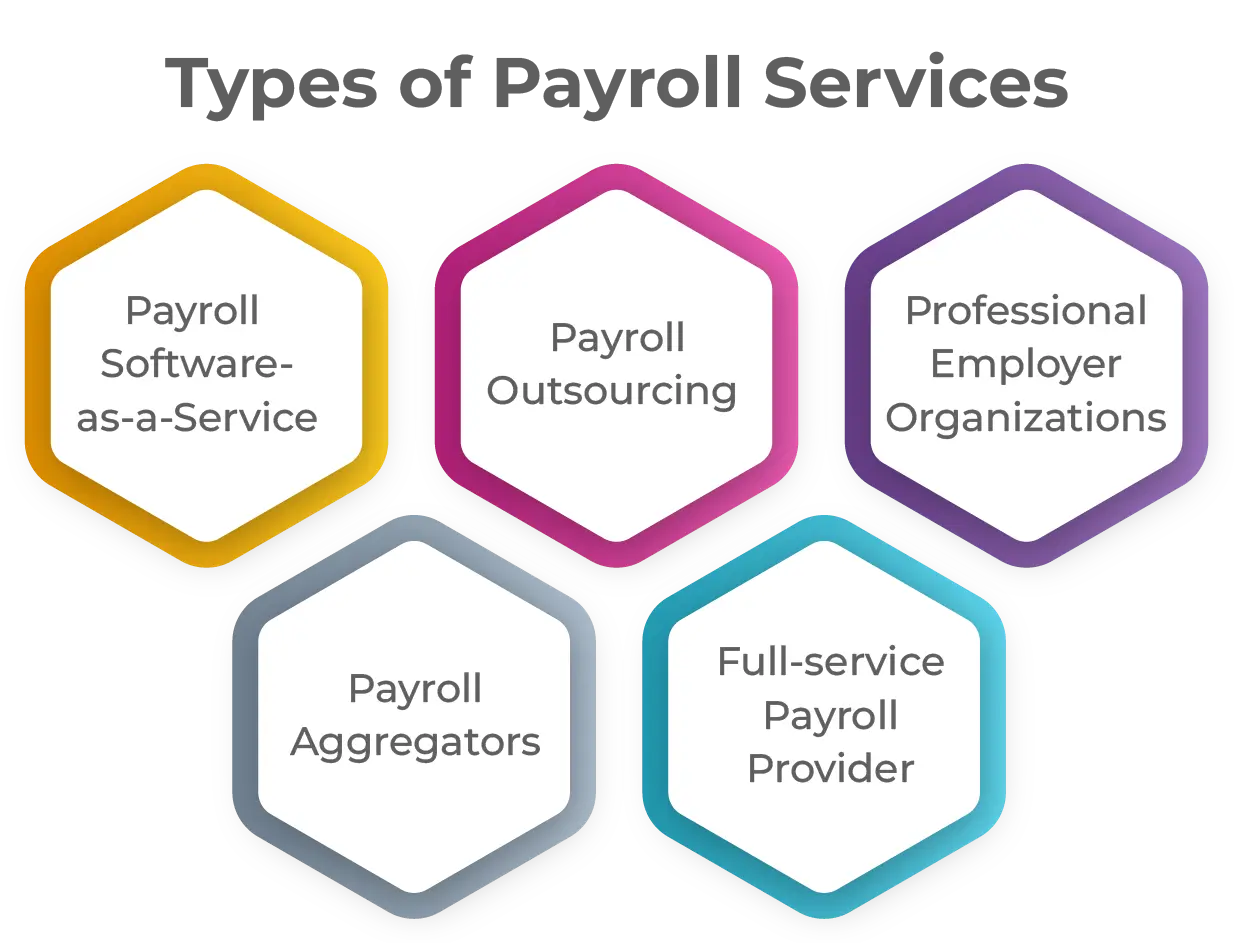Payroll Services Meaning
Table of Contents

Reading Time: 9 minutes
Payroll processing is one of the most critical tasks undertaken by any organisation. Since wages are one of the primary factors for employees to show up to their work and undertake their tasks effectively, they should be calculated precisely and distributed on time.
However, payroll processing is both time-consuming and resource-intensive task, which often takes multiple days of the HR department, every salary cycle. Hence, companies outsource their payroll processing tasks to a third-party payroll service provider, who can efficiently undertake all aspects of payroll processing from collecting the attendance data to generating statutory reports.
Since it is critical for the smooth functioning of any business, let us understand the payroll service meaning and whether you should opt for it.
What is Payroll Service?
A payroll service is a third-party organisation that handles a company’s payroll processing. It undertakes multiple tasks such as the calculation of payroll, withholding taxes, payments disbursal, and more. A robust payroll service provides timely and accurate payroll distribution while ensuring that it is compliant with all statutory laws and regulations.
Payroll services are especially useful for small to medium-sized businesses as they help them outsource the time-consuming process of payroll calculations and disbursals. The time and efforts saved with it can be re-allocated to strategic tasks such as developing employee engagement activities using a dedicated employee management system. Additionally, it also helps them avoid hefty fines for not complying with the various laws related to labour management.
Types of Payroll Services
There are various types of payroll services available in the market, as different kinds of organisations require a diverse range of services. Since payroll processing comprises various components, companies can choose to outsource a single aspect of it or delegate the complete process to a payroll service provider.
Hence, let us understand the various types of payroll services:

1. Payroll Software-as-a-Service
Payroll Software-as-a-Service provides the flexibility of a cloud platform for undertaking payroll processing. Hence, this software is usually deployed by small and medium-sized businesses. They have the flexibility to add or remove payroll features according to their exact requirements, as the cloud platform enables them to tackle statutory requirements automatically.
2. Payroll Business Processing Outsourcing
Payroll Business Processing Outsourcing is undertaken when a company requires specific aspects of its payroll to be outsourced to third parties. For example, a specific company might be able to undertake the complete payroll process, requiring the help of a payroll service provider only for fulfilling taxes and other statutory requirements.
3. Full Service Payroll Provider
Full Service Payroll Provider undertakes complete payroll processing from collecting attendance and other monthly inputs to calculating and distributing salaries and generating reports. As it carries out the complete processing of employee payroll, this type of payroll service is usually deployed by large organisations with a huge number of employees.
4. Professional Employer Organisations
Professional Employer Organisations (PEOs) provide complete HR solutions to organisations, including their payroll processing. PEOs work with an organisation on a co-employment model to provide complete HR operations, which is suitable for organisations with limited HR capabilities. As a result, PEOs provide advanced HR and employee management options to companies with limited resources.
5. Payroll Aggregators
Payroll aggregators are used by companies that have offices or employees in different geographical regions. For example, if a company has offices in India, the US, and the UK, it can employ the services of a payroll aggregator to process its employee salaries. Since they specialise in providing payroll services to companies from different countries, they can tackle the complex statutory requirements of these countries to ensure smooth payroll processing.
Working of Payroll Service
While the exact working of the payroll service depends on the company utilising its services, the general framework remains the same. Since payroll is a repetitive process, the same steps are required to be followed every salary cycle to ensure on-time salary disbursals. Hence, whichever type of payroll service you choose, its general working is as follows:
➔ Gather Payroll Data
The first step is to collate the data necessary to process employee payroll. It includes several kinds of monthly inputs, such as the employees’ attendance and overtime details, their working hours, leaves taken, etc. It also includes bonuses and commissions of any sort, which are required to be paid out in the current salary cycle.
➔ Calculate Wages
Once the necessary data is collected, the payroll service provider calculates the employee’s salary according to their payroll structure, which can be different for each employee in an organisation. They include all factors required to calculate the salary accurately, such as the employee’s working hours, their leaves, additional bonuses and arrears, and more, to ensure that the employee is compensated adequately for their time and efforts.
➔ Withhold Deductions
Once the salary is calculated, the payroll service provider withholds any kind of deductions, such as Tax Deducted at Source (TDS) or income tax, professional tax, as well as voluntary deductions by the employee, such as life insurance premium, mediclaim premium, etc. The statutory deductions, such as income tax, are withheld from the employees and paid to the Government on their behalf by the employer.
➔ Disburse Payments
Once the salaries are calculated and the deductions are removed from the payroll amount, the final net pay is distributed to the employees. They can be paid in cash, using checks, or direct deposits, according to the payment mode agreed upon by the employee and the employer beforehand.
➔ File Taxes
Once the payment is distributed, the taxes deducted from employee salaries are filed and submitted to the Government. It includes the filing of various tax forms, paying the liabilities, while ensuring that the amount and the file work remain compliant with the numerous labour laws. The payroll service provider also shares the details of the transactions with the company for safekeeping.
➔ Generate Reports
Similarly, the payroll service provider is required to maintain files on the salary payments undertaken for the company. Hence, they generate various kinds of reports for companies employing their services. Additionally, the service provider is also required to generate reports for the company’s internal usage.
Benefits of using Payroll Service
Since a payroll service provider will be able to undertake all aspects of employee payroll, the organisation employing their services will be able to enjoy multiple benefits. While the improved efficiency in calculating and distributing employee wages is the most important advantage of using payroll service, there are multiple other benefits too, such as:
1. Increased Accuracy
Payroll processing is a tedious and time-consuming process. It involves multiple complex calculations in different stages of the process, and a single mistake could result in different kinds of errors, such as overpayment or underpayment. Even if the errors are caught before the payment is released, you still risk late payments, which will have a negative impact on your organisation. Payroll service helps you avoid these scenarios as the service provider takes care of the calculations, resulting in enhanced accuracy and on-time payments.
2. Automated Taxation
Similarly, as the payroll service provider undertakes the payroll calculations, tax calculations are also automated through them. Since they are in charge of the company payroll, the payroll service provider calculates taxes as well as deducts them from employee salaries and files them on time on behalf of your organisation. It reduces the risk of penalties for late filings while ensuring accurate tax payments to the government.
3. Complete Compliance
Additionally, the payroll service also ensures complete compliance with the labour laws. Companies are required to follow numerous statutory compliances related to employment while running a business. The payroll service proves to be helpful with these compliances as they help businesses comply with the labour laws, overtime payments, etc. and ensure minimum wage requirements are met, resulting in enhanced compliance.
4. Improved Security
Since payroll service handles payroll data, they utilise advanced security measures to ensure that this data remains safe and secure. The payroll data comprises confidential information such as the employee’s bank details, their salary details, and other related information, which is sensitive. Hence, payroll service providers utilise highly secure enterprise-grade encryption standards along with user access control mechanisms to safeguard this data.
5. Enhanced Savings
Hiring a payroll service provider also saves costs by automating the payroll process. Your organisation may be required to pay a service fee to the service provider; however, this cost is offset by the savings you reap from hiring them. The savings in cost come from manual error avoidance, as well as the savings in costs related to manual labour. It also helps the company save itself from tax penalties and other fines related to non-compliance with the payroll and labour laws.
Difference between Payroll Service and Payroll Software
The major difference between payroll software and payroll service is that, while the payroll service enables you to completely outsource your payroll processing, the payroll software requires you to input the details and generate the output. As a result, payroll software is cheaper to implement than a payroll service. On the other hand, you save time and effort with a payroll service, as they handle everything related to your payroll.
You get better control of your payroll process with payroll software since it requires you to enter the details manually into the system. Since you are entering the details manually, you can set it to your exact requirements, which may not be available with a payroll service. Additionally, using the payroll software requires the user to understand the nuances of employee payroll processing and related taxes.
On the other hand, outsourcing payroll processing to a third-party payroll service provider relieves you of all kinds of payroll responsibilities, as they will handle all aspects of payroll, including the calculation of taxes and taking care of any other compliances.
Hence, it is essential to understand the requirements of your staff and organisation before deciding to opt for a payroll service provider or payroll software. For example, if you wish to have more control over your payroll process, you can opt for payroll software. Conversely, if you wish to completely outsource your payroll process, you can opt for a payroll service.
How to choose the Best Payroll Service?
Choosing the best payroll service can be challenging for organisations since it deals with the processing of the payroll of your employees. Hence, it should be undertaken based on your business, the size of your organisation, the staff employed, and multiple other factors. By analysing these factors for every payroll service provider that you have shortlisted, you will be able to find the ideal one for your business.
Following are some of the major factors to keep in mind for choosing the best payroll service:
➔ Payroll Requirements
Since the payroll service is used to process your employee payroll, you should check the payroll requirements of the organisation. You should consider all aspects of payroll, such as the number of employees within the company and the associated compliance requirements. Additionally, you should check what the existing payroll is and the challenges faced by the HR and payroll team in processing employee salaries.
➔ Company Size & Structure
The next step is to assess your company size and structure to understand how complex your existing payroll system is. As a rule of thumb, larger organisations generally have more complex payroll systems as they comprise more departments and employees handling different kinds of designations. Hence, it is essential to consider these aspects before choosing the ideal payroll service for your organisation.
➔ Client Support
Customer support is another important facet of payroll service that you should consider before choosing the ideal system. Ideally, the payroll service provider should have different support options such as real-time chat, calls, and emails. Having a robust support system ensures that you find the right resolutions to your issues whenever required.
➔ Scalability & Flexibility
Since your business is bound to grow over time, you should also check out the scalability and flexibility provided by the payroll service provider. Since the initial cost of setting up an outsourced payroll system is higher, it is essential to ensure that this system keeps up with the growth of your organisation. Additionally, it should also adapt to your changing requirements, which requires the system to be highly flexible.
Conclusion
Outsourcing payroll processing to a payroll service provider is one of the best tasks you can undertake to free yourself of the various administrative aspects of salary disbursals. Given the numerous advantages it provides, the additional cost incurred makes the investment worth the time and money you invest. Additionally, it provides your payroll and HR team with additional time, which can be invested in strategic tasks such as upskilling or employee engagement.
You can use the pointers above to find the ideal payroll service that can resolve all your payroll challenges, ensuring smooth and compliant payroll processing every salary cycle. You should choose the payroll service judiciously, given the numerous kinds of services available currently.
FAQs on Payroll Service
1. What is the difference between payroll service and payroll software?
The main different a payroll service and payroll software is that in the case of payroll service, the entire process of payroll is outsourced to a third-party organization; while in the case of payroll software, you are automating the processes associated with payroll, while still having primary control over the actual processing of your employee payroll.
2. How do I choose the best payroll service provider?
To choose the best payroll service provider, you should consider multiple factors such as the size and complexity of your organisation. Additionally, you should check the service provider’s reputation, which can be evaluated through the robustness of their support systems. Finally, you should also check whether their services can be scaled and changed according to the changing payroll requirements of your organisation.
3. How much do payroll services cost?
The cost of payroll services varies a lot depending on various factors such as the size and complexity of the organisation where it is implemented, the type of payroll service being availed, the requirements of the organisation, and more.
4. What is included in payroll services?
Payroll services include all aspects of employee payroll processing, such as collecting attendance and working hours data, calculating net employee wages based on it, removing taxes and other voluntary deductions, including additional bonuses and commissions, and disbursing the salaries on time, while also generating statutory and other payroll reports.
5. What information do I need to provide to start payroll services?
To ensure accurate and on-time payroll, you need to provide the following information to your payroll service provider:
- Company details such as legal name and address
- Company’s PAN, TAN, etc., for regulatory purposes
- Bank account details of the company
- Business registration information
- Employee details like PAN, UAN, name, Employee ID, etc.
- Employment details such as date of joining, job title, department, etc.
- Salary and bank details of the employees
- Tax information of each employee.







